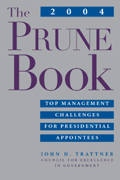Studies in this week’s Hutchins Roundup find that sanctions imposed on two-year for-profit schools in the 1990s did not reduce aggregate college enrollment, bank stress tests and supervisory guidance limited risk-taking by US banks, and more.
Want to receive the Hutchins Roundup as an email? Sign up here to get it in your inbox every Thursday.
Sanctions imposed on for-profit schools raised enrollment in community colleges and left student debt unchanged
Focusing on sub-baccalaureate institutions over the 1991-2000 period, Stephanie Cellini of George Washington, Rajeev Darolia of the University of Missouri–Columbia and Lesley Turner of the University of Maryland find that sanctions that limited student access to federal aid imposed on for-profit colleges reduced Pell Grant recipient enrollment by 53 percent in the affected institutions and by 15 percent in the neighboring for-profit schools over the following five years. However, they also find that enrollment in community colleges in the same counties as the sanctioned institutions rose by 17 percent, completely compensating for the drop in attendance in the for-profit schools. Furthermore, they show that this increase in public sector enrollment did not lead to an increase in student borrowing or defaults.
Bank stress tests and supervisory guidance inhibit excessive risk-taking
After the financial crisis, US banking regulatory agencies used bank stress tests, supervisory guidance, and other instruments to limit excessive risk-taking by large banks. Paul Calem of the Philadelphia Fed and Ricardo Correa and Seung Jung Lee of the Federal Reserve Board conclude that the 2011 bank stress tests reduced the share of jumbo mortgages—residential mortgages that exceed the conforming loan size limit—originated by stress-tested banks by about 3.4 percentage points in the first three quarters of that year. They also conclude that the supervisory guidance published by regulators in 2014—which articulated minimum standards for safe and sound lending practices—reduced the share of speculative-grade corporate loan originations in regulated banks to 27 percentage points below the post-crisis average.
GLOBalization raises top business incomes in part through rent capture
Using data on the compensation of executives at US firms during 1993-2013, Wolfgang Keller of the University of Colorado at Boulder and William Olney of Williams College show that advances in globalization, as proxied by exports, raise the compensation of business executives and thus income inequality. In particular, a 10 percent increase in exports leads to a 2 percent increase in the compensation of executives. Importantly, this trend does not simply reflect market returns to talent. The authors suggest that rent capture plays an important role because bonus payments, which are by nature relatively discretionary and conducive to rent capture, drive the increase in executive compensation, and because the increase in compensation is larger in settings with poor governance, such as in the presence of insider board relationships.
Chart of the week: according to some estimates, older and poorer americans and americans in poor health would be hit hardest by the march 6 version of the ahca
QUOTE OF THE WEEK: “in principle, a monetary policy committee could decide to follow a rule,” says fed vice chairman stanley fischer.
“Emphasis on a single rule as the basis for monetary policy implies that the truth has been found, despite the record over time of major shifts in monetary policy–from the gold standard, to the Bretton Woods fixed but changeable exchange rate rule, to Keynesian approaches, to monetary targeting, to the modern frameworks of inflation targeting and the dual mandate of the Fed, and more. We should not make our monetary policy decisions based on that assumption. Rather, we need our policymakers to be continually on the lookout for structural changes in the economy and for disturbances to the economy that come from hitherto unexpected sources.”











Commentary
Hutchins Roundup: For-profit colleges, executives’ compensation, and more
Thursday, May 11, 2017